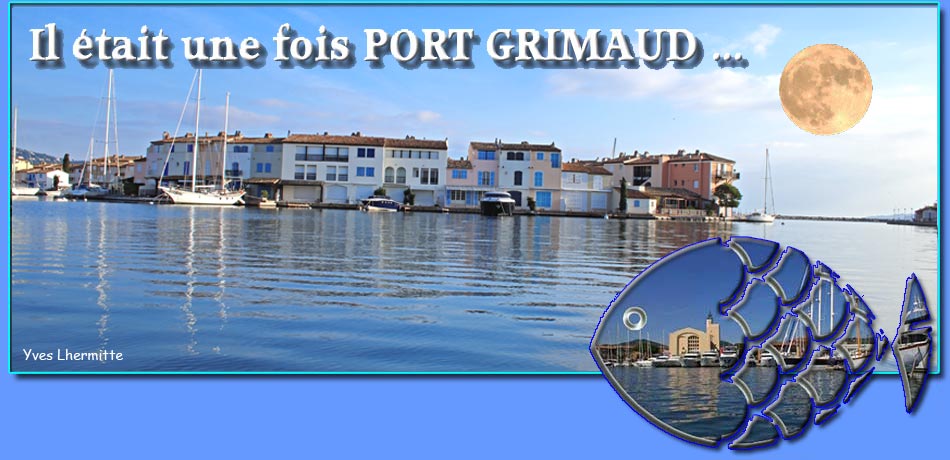
BEGINNING OF THE PROJECT :
François SPOERRY explained his project to a journalist from the daily newspaper "l'Alsace" as follows: "Port Grimaud was born from my desire to have a small house on the waterfront with a boat in front of my door... But I also plan to create a village and not just a collection of houses. A real village with its own house, its square, its church, its hotels and restaurants. A village as it would have been if the architects had not existed. From the past, but in harmony with the men and things of the present..."
ONCE UPON A TIME...
Once upon a time, a little boy discovered, to 6 years old, during a visit to the Museum of his home town Zurich, models of prehistoric lake cities, small huts on stilts in front of which small canoes carved out of logs had been built; This visit amazed little François who returned several times to dream in front of these small villages, nourishing the idea of creating his own lake city, an ambition which germinated and matured over 40 years..
One of the models depicting a prehistoric lake city, exhibited at the Landesmuseum in Zurich.
The END of a DREAM
At the age of 20, the medical services of the French Navy, where François Spoerry wanted to enlist, refused his application because of poor eyesight... The end of a dream for this ambitious young man and the beginning of another great passion: He entered architecture... !
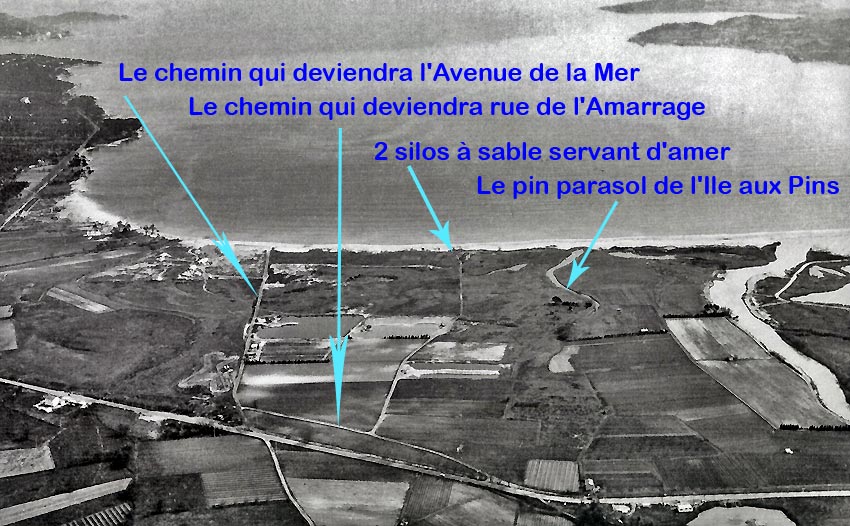
Aerial views of the bare ground on which PORT GRIMAUD was to be built in 1963.
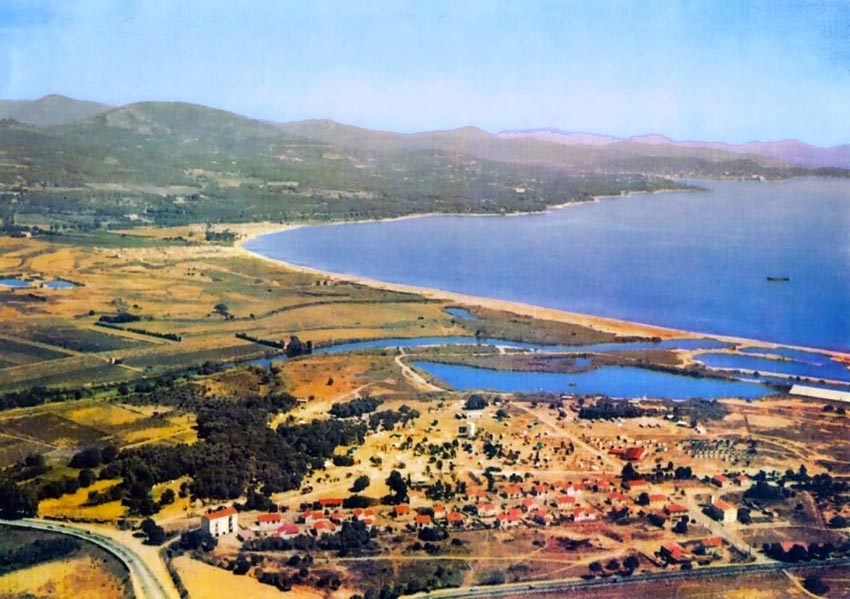
DISCOVERY of the LAND
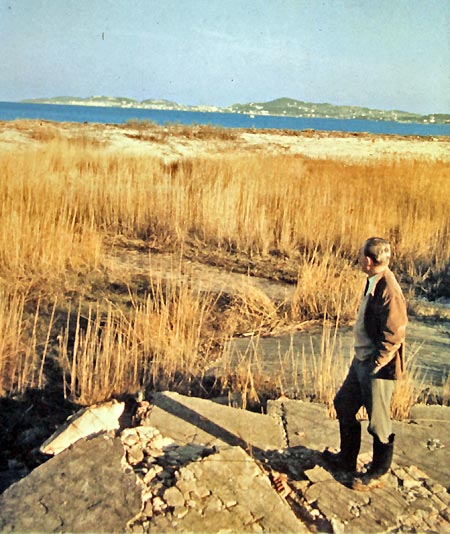
On his way to the site, François SPOERRY realised very quickly that he had just discovered the location of the work to which he was going to devote his life.
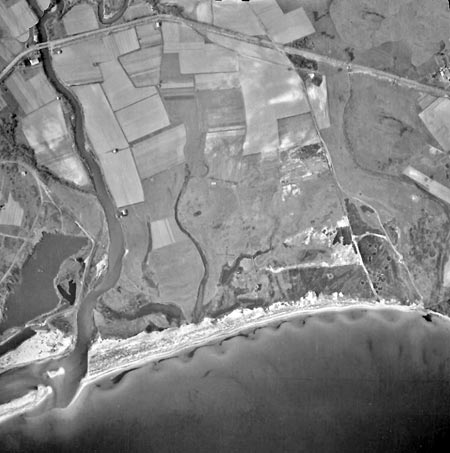
ARCHIVE
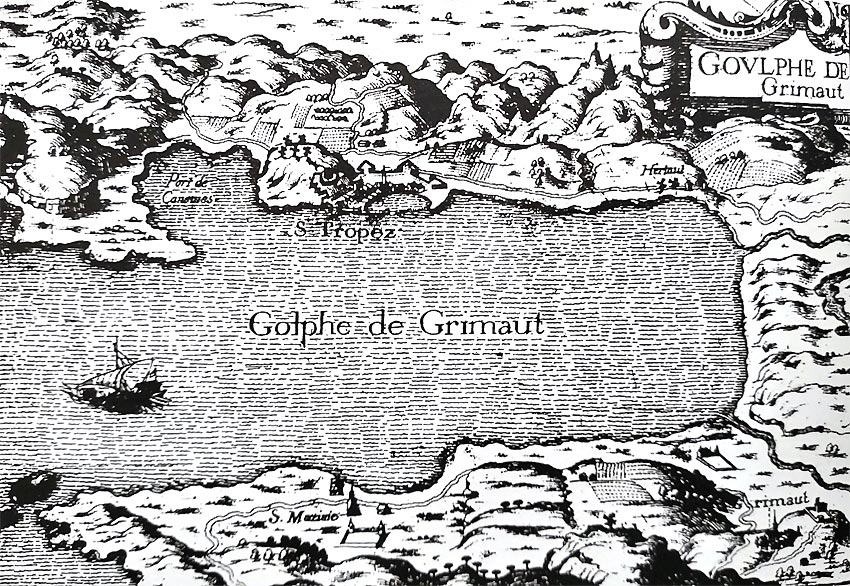
Map dating from the end of the 17th century, when the "Castellane" reigned.
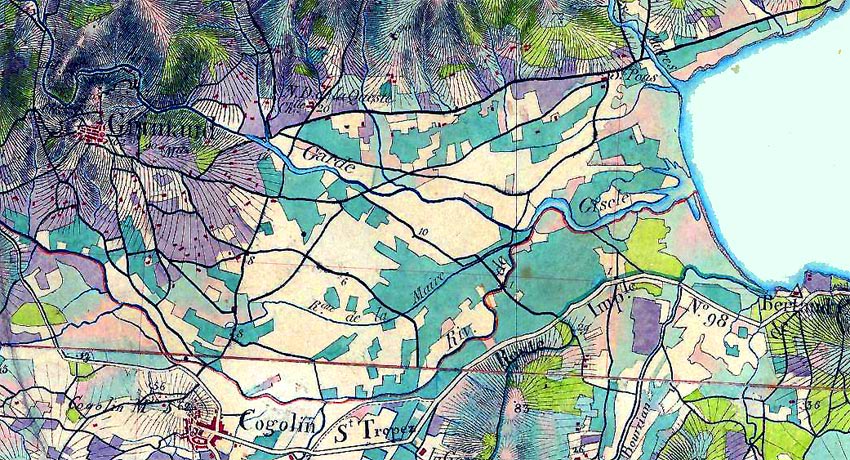
Map of the land dating from 1865
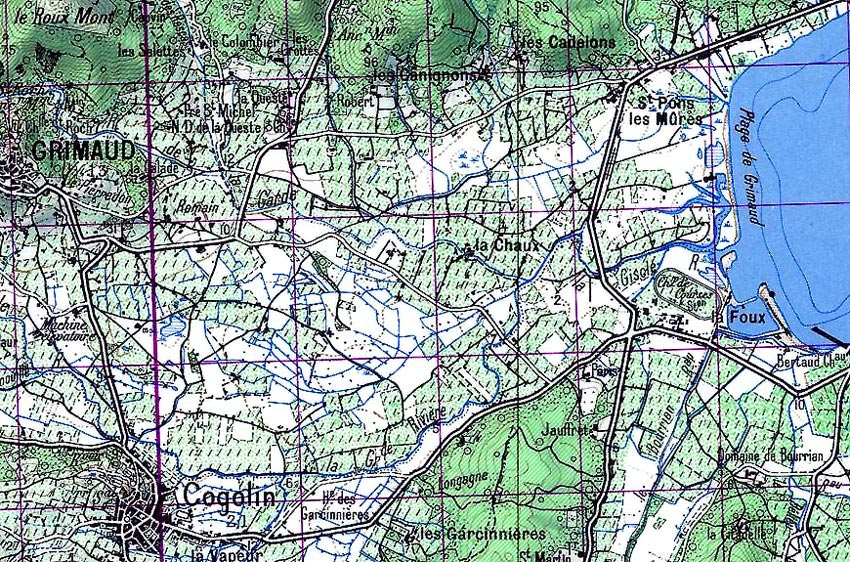
Map of 1950
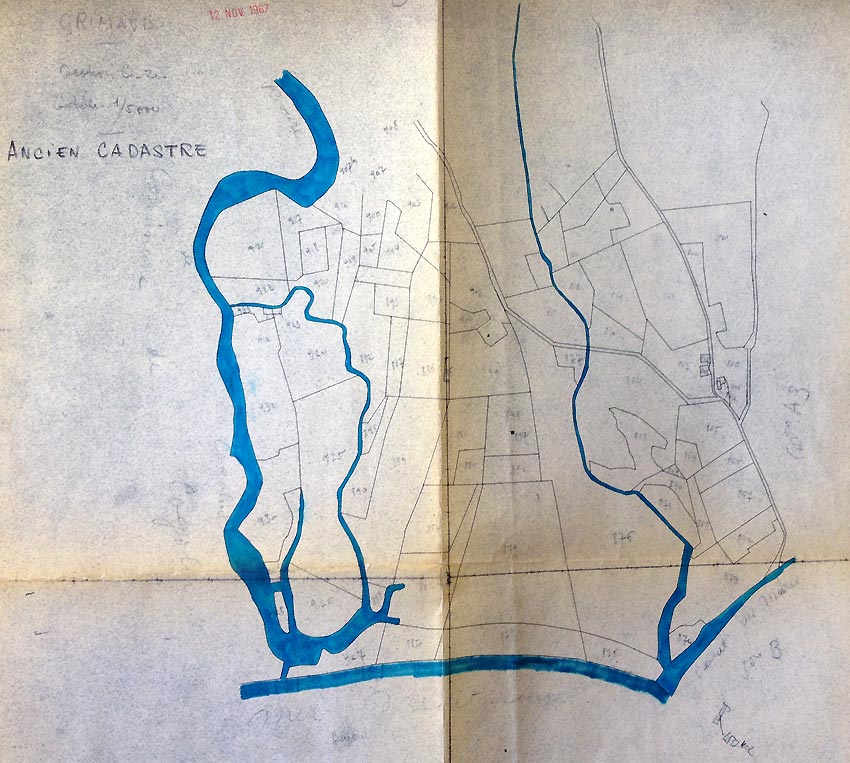
the old cadastre with the land.
ATHENOPOLIS
According to legend, the Greeks built one of the most beautiful lake cities at the bottom of the Gulf of St Tropez. It was called "ATHENOPOLIS".
In 1790, the revolutionary municipality of Grimaud gave back to the village this old but francized name "ATHENOPOLE", thus refusing the name of GRIMAUD of seigniorial origin...
And in 1966, a new lake city "came out of the sea" on the same plain as before, and took the name of PORT GRIMAUD..
UMBRELLA PINES
The only real vegetation in these places, majestic umbrella pines, were cut down in 1943 by men requisitioned from the local population by order of the occupying armies, in order to make a possible landing by the Allies more dangerous.
There were still a few that François SPOERRY preserved by building around it (l'île aux Pins or the one in front of the restaurant La Tartane).
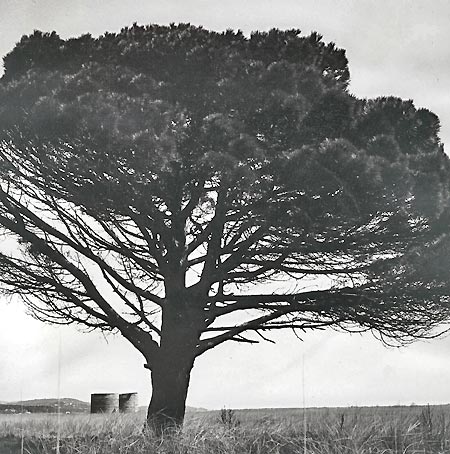
BUILDING PERMIT
Then began three long years of procedures to obtain the indispensable building permit... One of the very pretty squares of PORT GRIMAUD was named "14 June" square to immortalise this achievement in 1966 ...
However, this building permit was signed on 13 June 1966 ! (see why below...)
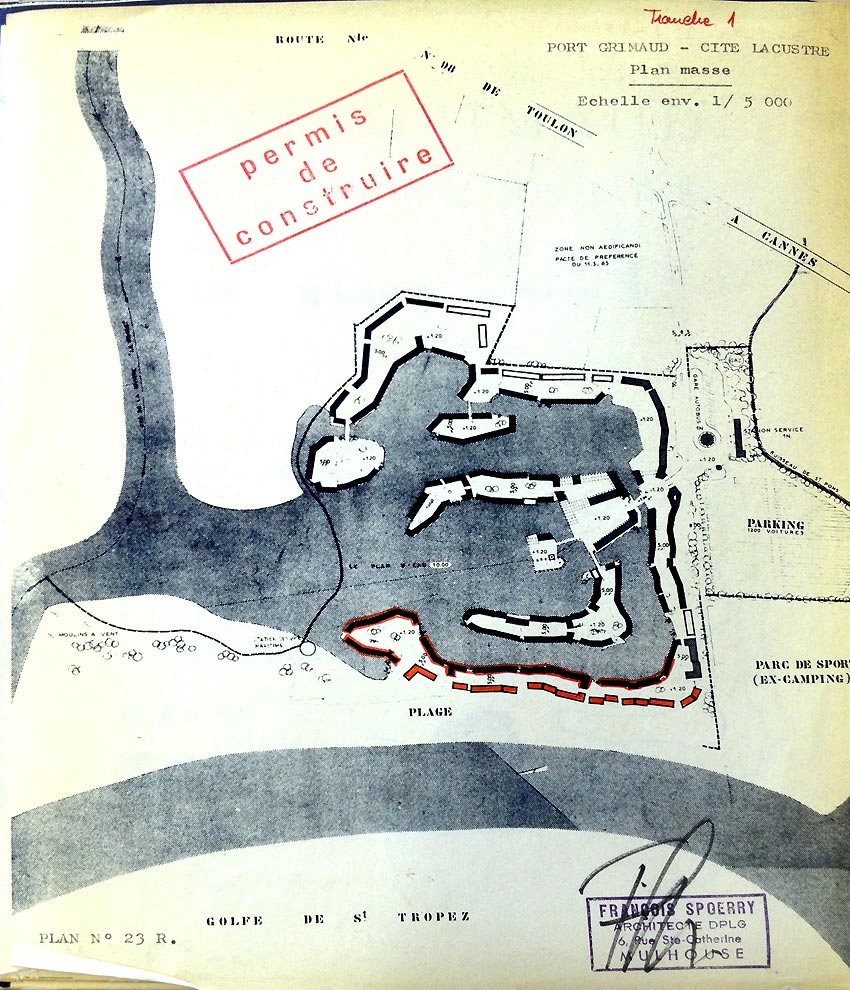
Building permit for the first phase :
In fact, the architect did not wait for the first building permit of June 14, 1966, a permit filed in 1963, to start the work.... You can discover the text of the "PREALABLE APPLICATION" that the architect had submitted on June 24th 1965 in support of his application for a building permit....
Archive
THE UMBRELLA PINES
The umbrella pines at the beginning of the century, with the Toulon/St Raphael railway line, which was closed in May 1948 and which passed through or was traced the cycle path...
THE SANDPIT
The sandpit with its Decauville locomotive, on the site of the future lake city...
THE PIGNES TRAIN :
The La Foux - St.Raphaël line was opened on 19 September 1889.
At km 53,800 (departing from Hyeres) a bridge was built over the Giscle, consisting of a 30 m steel span.
At km 54.850, a junction for the Foux sandpit, corresponding to the road leading to Port Grimaud 1, with a total length of 850 m., went towards the sea and ended in two dead-end lanes at the edge of the basins where a steam dredger took the sand.
This was collected by a 0.6-metre track network to be loaded onto trains in the South of France.
From 6 to 15 April 1944, during the construction of the "Südwall" (the fortification of the Var coastline), German troops demolished the Foux station and all the adjoining buildings (2nd class building, goods hall, depot for two machines, car shed, two main tracks and one goods track, 120 m2 water tower, three hydraulic cranes for the main line and two for the Cogolin - St.Tropez tramway), of which nothing remains today.
The collection of sand was seriously disrupted.
In May 1948, the railway tracks were dismantled. Trucks, replacing the trains, continued to search for sand for a few more years on the site of the present lake city...
History of the Coastal Train
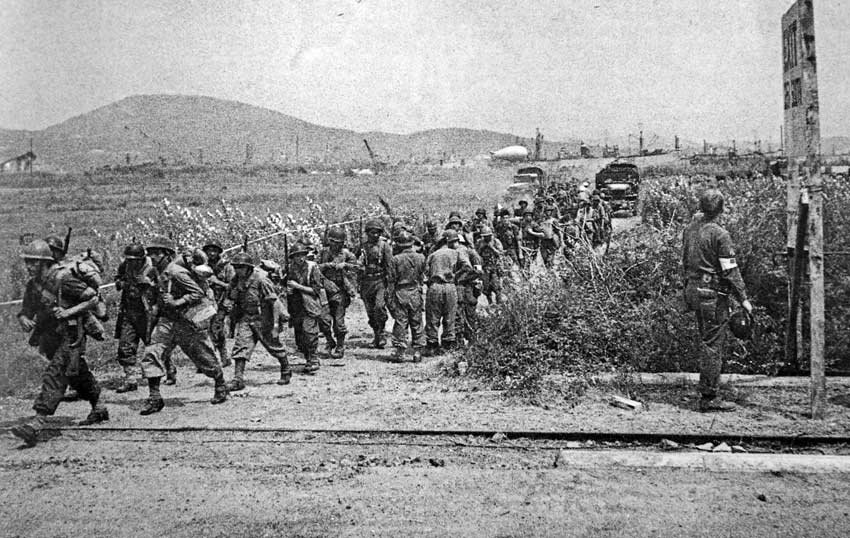
Photo prise en 1944 : Landing of the French troops... The umbrella pines have been razed Au font la Haute Suane...
BEFORE / AFTER
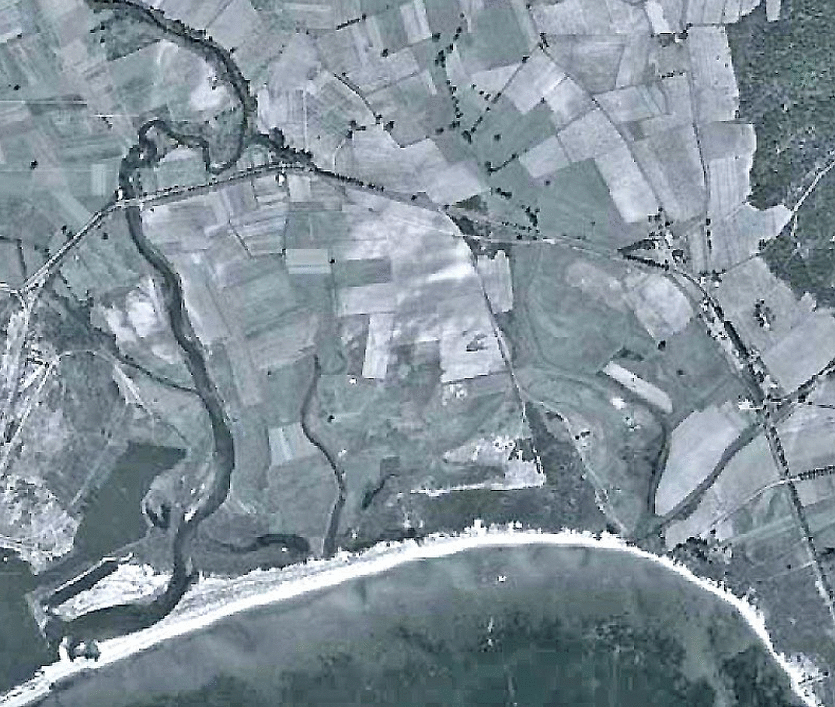
On this marshy ground, the architect's dream would come true...
Discover now, in a few dozen pages of this history, how our lake city emerged from the ground to become this beautiful architectural curiosity known (and sometimes copied) throughout the world.